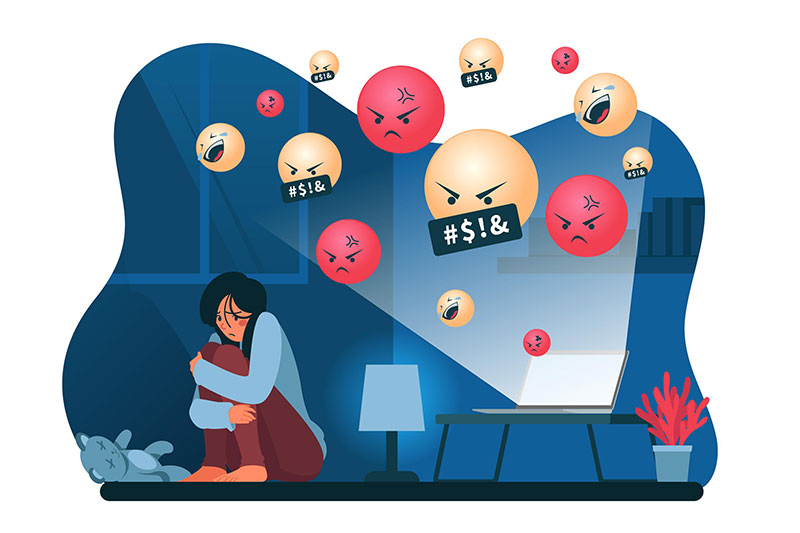In a world characterized by constant social interactions, the experience of anxiety can often be overwhelming. Social anxiety, a condition that affects countless individuals, can hinder personal and professional growth, leaving one feeling trapped in a cycle of apprehension and self-doubt. However, there exists a powerful tool that has shown promising results in alleviating these distressing feelings – meditation.
Meditation, an ancient practice with roots in various cultures, has gained significant attention for its potential to soothe the mind and promote emotional well-being. When applied to the realm of social anxiety, meditation offers a pathway to inner calm and heightened self-assurance. By engaging in mindfulness exercises, individuals can learn to observe their thoughts and feelings without judgment, fostering a greater sense of self-awareness. As a result, the grip of social anxiety gradually loosens, paving the way for increased confidence and improved social interactions.
This journey towards meditative relief from social anxiety begins with simple steps. Creating a serene environment, focusing on the breath, and embracing guided meditation sessions are effective starting points. Over time, consistent practice can lead to profound transformations, empowering individuals to confront social situations with a newfound sense of tranquility.
In this exploration of meditating for social anxiety, we delve into the techniques, benefits, and insights that meditation can offer. By embarking on this transformative quest, individuals can cultivate a resilient mind, navigate social encounters with poise, and ultimately embark on a path towards a more fulfilling and confident life.
How Can I Start Meditating for Social Anxiety?
Starting a meditation practice to address social anxiety can be a transformative journey. Follow these steps to begin your meditative journey towards relief:
- Find a Quiet Space: Choose a calm and quiet environment where you won’t be disturbed. Creating a peaceful atmosphere helps you focus and relax.
- Set a Routine: Dedicate a specific time each day for meditation. Consistency is key to experiencing the benefits of meditation over time.
- Comfortable Seating: Sit comfortably with an upright posture. You can sit on a cushion or chair, ensuring your spine is aligned and relaxed.
- Focus on Breath: Begin by taking slow, deep breaths. Focus your attention on the sensation of your breath entering and leaving your body. This helps anchor your mind and reduces anxiety.
- Guided Meditation: Explore guided meditation sessions tailored to social anxiety. Many apps and online resources offer guided mindfulness practices designed to ease anxiety.
- Mindfulness: Practice mindfulness by observing your thoughts and feelings without judgment. Acknowledge them and let them pass, redirecting your focus to your breath.
- Progressive Muscle Relaxation: Incorporate progressive muscle relaxation techniques to release physical tension associated with anxiety.
- Start Small: Begin with short sessions, like 5-10 minutes, and gradually extend the duration as you become more comfortable.
- Be Patient: Progress may be gradual. Don’t get discouraged if you don’t see immediate results. Consistent practice over time is key.
- Seek Guidance: Consider joining a meditation class or seeking guidance from a therapist experienced in mindfulness practices.
- Stay Open-Minded: Different meditation techniques work for different people. Experiment with various methods to discover what resonates with you.
- Journaling: After each session, jot down your thoughts and feelings. This can help track your progress and provide insights into your anxiety triggers.
Remember, meditation is a skill that develops with practice. Over time, you’ll likely experience increased self-awareness, reduced anxiety, and a greater sense of control over social interactions. Stay committed to your practice, and the benefits will unfold gradually.
How Well Does Meditation Help with Social Anxiety?
Meditation can be an effective tool for managing and reducing social anxiety, but its effectiveness varies from person to person. Here’s an overview of how meditation can help with social anxiety:
- Stress Reduction: Meditation promotes relaxation and helps lower overall stress levels. This can contribute to a calmer state of mind, making it easier to cope with anxiety-inducing social situations.
- Mindfulness: Mindfulness meditation teaches you to observe your thoughts and emotions without judgment. This practice can increase self-awareness and help you better understand your anxiety triggers, allowing you to respond more skillfully in social situations.
- Emotion Regulation: Meditation can improve emotional regulation, enabling you to manage intense feelings of anxiety more effectively. This can lead to a reduction in the emotional intensity of social anxiety.
- Cognitive Restructuring: Meditation encourages a more balanced perspective on thoughts and beliefs, which are often distorted in people with social anxiety. Over time, this can lead to a shift in negative self-perceptions and a decrease in anxiety-driven thought patterns.
- Self-Compassion: Meditation fosters self-compassion, promoting a kinder and more accepting relationship with oneself. This can counteract the self-criticism often associated with social anxiety.
- Physiological Changes: Regular meditation has been shown to lower heart rate, reduce blood pressure, and alleviate muscle tension – physical responses associated with anxiety.
- Confidence Building: As meditation cultivates a sense of inner calm and self-assurance, it can contribute to increased confidence in social interactions.
It’s important to note that while meditation can be beneficial, it may not provide immediate or complete relief from social anxiety. It’s often most effective when used as part of a comprehensive approach that may include therapy, medication (if recommended by a healthcare professional), and lifestyle changes.
Consistency is key when practicing meditation for social anxiety. Over time, with regular practice and the right techniques, many individuals experience noticeable improvements in their ability to manage anxiety and navigate social situations more comfortably. However, if you’re struggling with severe social anxiety, it’s advisable to consult a mental health professional who can provide personalized guidance and support.
Can Meditation Worsen My anxiety?
In some cases, meditation might initially trigger feelings of anxiety or unease, especially if approached without proper guidance or in certain circumstances. However, it’s important to understand that meditation itself is not meant to worsen anxiety. Instead, it aims to promote relaxation, self-awareness, and emotional balance. Here are a few considerations to keep in mind:
- Inexperienced Practice: If you’re new to meditation and attempt advanced or lengthy practices without proper guidance, it could potentially lead to frustration or increased anxiety. It’s important to start with simple techniques and gradually progress.
- Uncomfortable Emotions: Meditation can bring suppressed emotions to the surface, including those related to anxiety. Initially, this might feel uncomfortable, but it can be part of the healing process as you work through and release these emotions.
- Mindfulness of Anxiety: Mindfulness meditation encourages observing thoughts and emotions, including anxiety, without judgment. This can sometimes lead to an increased awareness of anxiety symptoms. While this can be beneficial in the long term, it might be challenging at first.
- Underlying Issues: If there are unresolved psychological or emotional issues contributing to your anxiety, meditation might bring them to your awareness. This could initially feel distressing, but it’s an opportunity to address and heal these issues.
- Physical Discomfort: Meditation involves sitting still for extended periods, which might trigger physical discomfort or restlessness. This discomfort could potentially contribute to a feeling of unease.
To mitigate the risk of meditation exacerbating anxiety, consider the following:
- Start Slowly: Begin with short and simple meditation sessions. Gradually increase the duration and complexity as you become more comfortable.
- Guided Sessions: Use guided meditation sessions specifically designed to address anxiety. These sessions often provide gentle guidance and relaxation techniques.
- Professional Guidance: If you have a history of severe anxiety or mental health concerns, consult a mental health professional before starting a meditation practice.
- Self-Compassion: Approach your meditation practice with self-compassion and patience. Be open to the experience without placing undue pressure on yourself.
Remember that meditation is a skill that develops over time. If you experience heightened anxiety during or after meditation, it’s important to assess the situation, adjust your approach if necessary, and consider seeking guidance from a qualified meditation instructor or mental health professional.
What Are Some Exercises I Can Do?
Certainly, here are some meditation and mindfulness exercises that you can try to help manage social anxiety:
- Deep Breathing (Diaphragmatic Breathing): Sit or lie down comfortably. Place one hand on your chest and the other on your abdomen. Inhale deeply through your nose, feeling your abdomen rise as you fill your lungs. Exhale slowly through your mouth, feeling your abdomen fall. Focus on your breath, letting go of tension with each exhale.
- Body Scan Meditation: Close your eyes and bring your attention to each part of your body, starting from your toes and moving upward. Notice any sensations or tension, and gently release them as you progress through each body part.
- Guided Imagery: Imagine yourself in a calm, safe, and peaceful place, like a beach or a serene forest. Engage your senses and immerse yourself in this mental sanctuary to reduce feelings of anxiety.
- Loving-Kindness Meditation: Focus on cultivating feelings of compassion and kindness toward yourself and others. Repeat phrases like “May I be happy, may I be healthy, may I be at ease,” extending the well-wishes to friends, family, and even those you may find challenging.
- Breath Awareness: Sit in a quiet space and focus solely on your breath. Notice the sensation of the breath entering and leaving your body. Whenever your mind wanders, gently bring your focus back to your breath.
- Mindful Observation: Choose an object (a flower, a candle flame, or a piece of fruit) and observe it mindfully. Pay close attention to its details, colors, textures, and any sensations it evokes.
- Grounding Techniques: Engage your senses to bring yourself into the present moment. Notice five things you can see, four things you can touch, three things you can hear, two things you can smell, and one thing you can taste.
- Progressive Muscle Relaxation: Start from your toes and work your way up, tensing and then relaxing each muscle group. This helps release physical tension associated with anxiety.
- Mindful Walking: Take a slow walk, paying attention to each step and the sensations in your body as you move. Notice the environment around you, the sounds, and the feeling of your feet making contact with the ground.
- Breath Counting: Inhale deeply through your nose, counting “one.” Exhale slowly through your mouth, counting “two.” Continue counting each breath cycle up to a count of ten, then start again from one.
Remember, the key is regular practice. Start with short sessions and gradually increase the duration as you become more comfortable. Experiment with different exercises to find what resonates with you, and don’t hesitate to seek guidance from meditation apps, online resources, or a qualified meditation instructor.
The journey of meditating for social anxiety unveils a powerful avenue for transformation and growth. Through the art of mindfulness and self-compassion, meditation offers a pathway to navigate the labyrinth of social interactions with newfound ease and confidence.
By embracing meditation, individuals embark on a voyage of self-discovery, unraveling the layers of anxiety that have often held them captive. This practice fosters an intimate understanding of one’s thoughts and emotions, leading to a heightened sense of self-awareness and emotional resilience.
As the soothing rhythms of breath and awareness intertwine, the grip of social anxiety gradually loosens, allowing space for a more authentic self to emerge. Guided by the light of mindfulness, individuals learn to cultivate a compassionate relationship with their own insecurities, embracing imperfections and fostering a sense of self-acceptance.
Just as a river’s steady flow reshapes the contours of its banks, meditation reshapes the landscape of the mind. With each session, the tides of anxiety recede, replaced by a sense of calm serenity. Confidence burgeons, and the once-daunting prospect of social interactions transforms into an opportunity for connection and growth.
In this meditative odyssey, the power to rewrite the script of social anxiety lies within. Through dedicated practice and a willingness to explore the inner realm, the potential for a life enriched by authenticity, tranquility, and self-assuredness becomes tangible. As we embark on this voyage of self-discovery, the horizons of possibility expand, illuminating a future marked by empowered engagement with the world.
Brought to you by Fomat Medical



